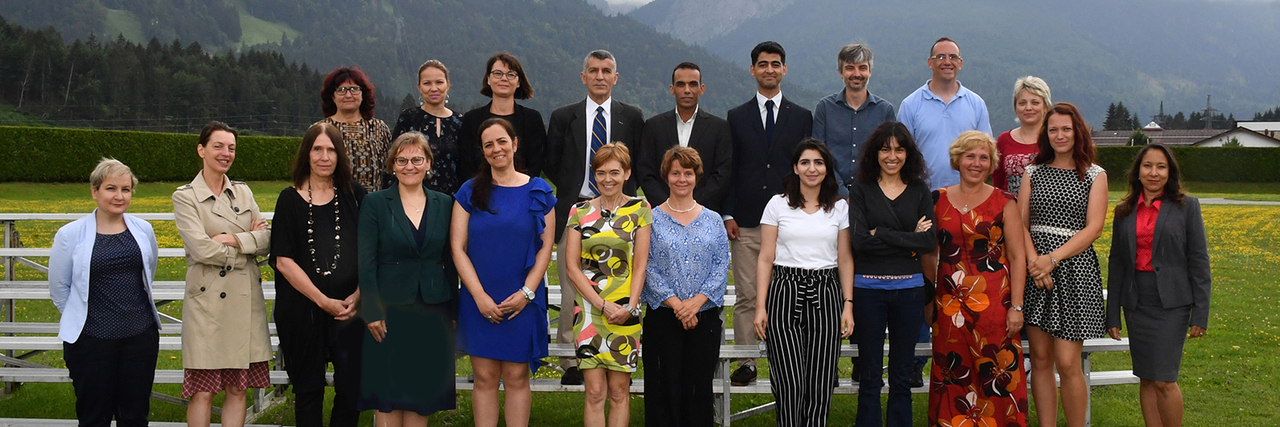
21 Language Testers Graduate from PLTCE’s Language Testing Seminar
By Roxane Harrison
Partner Language Training Center Europe
GARMISCH-PARTENKIRCHEN, Germany (June 22, 2018) – Twenty-one language testers from 18 NATO and partner nations completed the Partner for Language Training Center’s Language Testing Seminar June 22.
This is a two-week program with graduate level content for language professionals who work or will work on their nation’s STANAG 6001 testing team.
"The LTS is a great chance to be in a learning environment again,” said Santa Treija, language tester for the Latvian National Armed Force Language School in Latvia. “I know the theory of testing, but here we had an opportunity for practice with great people and experienced facilitators giving us feedback."
STANAG 6001 is the basic document implemented NATO-wide by appropriate ministerial bodies, responsible for language standards in the armed forces and language exams in each country, said Harrison.
The Language Testing Seminar is the foundation course for English language professionals who will be responsible for developing language proficiency tests to NATO standards.
"Although we come from almost 20 different backgrounds, the common point - standardization - was found during the course,” said Huseyn Hasanov, English teacher and tester with the Ministry of Defense in Azerbaijan.
LTS participants become familiar with the STANAG 6001 language proficiency descriptors and practice producing English language proficiency test items in the skills of listening, speaking, reading and writing for levels 1 through 3.
Participants learn the proficiency test development process to include the steps of drafting test specifications; selecting appropriate authentic passages and texts for reading and listening; writing, moderating and revising items and trialling tests.
During the second week of the course, participants conduct oral proficiency interviews, which are critiqued by their peers and the SME facilitators. New test items and tests require empirical data, so knowledge of statistics is essential for testers. Fundamental statistical concepts for testing are introduced during the LTS.
"I found the day we spent studying statistics very useful - especially the sessions and activities about interpreting statistical results for test items,” said Marisa Alia, quality control officer with the Military School of Languages in Madrid, Spain.
The expert adjunct faculty for the June LTS come from Denmark, Latvia, France and the United States.
The course participants come from Albania, Azerbaijan, Bulgaria, Croatia, Czech Republic, France, Jordan, Latvia, Poland, Portugal, Slovakia, Spain, Sweden, Tunisia, Turkey, Ukraine and United States.
This large variety of nationalities enables participants to learn about STANAG 6001 testing in many different countries.
The overall goal of the LTS is to promote standardized language testing and improve linguistic interoperability in the NATO Alliance and with its partners.
“This course is the first opportunity I've had to work together with testers from other nations and I have found it invaluable for sharing ideas and comparing techniques,” said Jeremy Wysakowski-Walters, senior exam specialist with the Polish Ministry of Defense.
